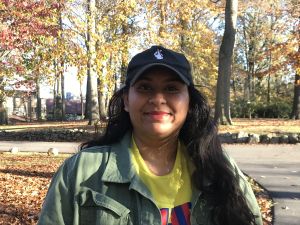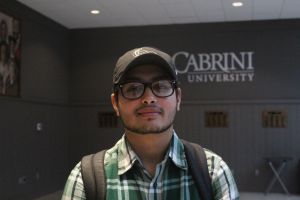Being a biology or chemistry major means studying for a career in fields like medicine, academics and secondary education, which, can be very demanding. Around 40 percent of engineering and science majors switch to other subjects or do not attain any degree at all, according to The New York Times.

Rhiddhiben Parmar, junior biology major, is studying to attend medical school in hopes of becoming a pediatrician. Parmar said that her workload is heavy, much of her homework consisting of lab reports, practice problems and studying for exams.
“I barely get time to do something fun in a day, even if it’s 30 minutes,” Parmar said. “I spend most of the time with my friends in the lounges studying for tests. I don’t have days where I can just relax.” Parmar said that she dedicates almost every day to studying for pre-med classes, and describes her professors as communicative and caring.
Joy Patel, a senior with a dual major in biology and chemistry and a minor in psychology, is also on the pre-med track. He said that being a dual major in biology and chemistry with a minor in psychology undoubtedly comes with high academic demands. “It requires a level of commitment and persistence to keep up with the daily assignments.” Said, Patel.

Patel said, “time management is essential to efficiently manage and prioritize an ever-increasing workload.” For homework, Patel is given research-based assignments that can range from the comprehension of scientific literature to theoretical computations of quantum mechanics. He spends an average of eight to 12 hours a week on classwork which he says is minimal for a science student.
Patel said that his professors are extremely knowledgeable in their respective fields. “They recognize the intense nature of the field and provide all of the necessary assistance for students not only to get through the course but also to cultivate an appreciation for the topics being covered,” Patel said. He added that professors will hold extensive office hours as well as make arrangements outside of their designated hours to assist students. “They demand hard work, but also reward it,” Patel said.
Patel has plans to pursue a postgraduate master’s degree for an additional two years to become a certified pediatric cardiopulmonary perfusionist. Patel said, “I’m most passionate about learning the intricate dynamics of the human body and I hope to apply the knowledge that I learn to better help and save lives of those in my care.”


